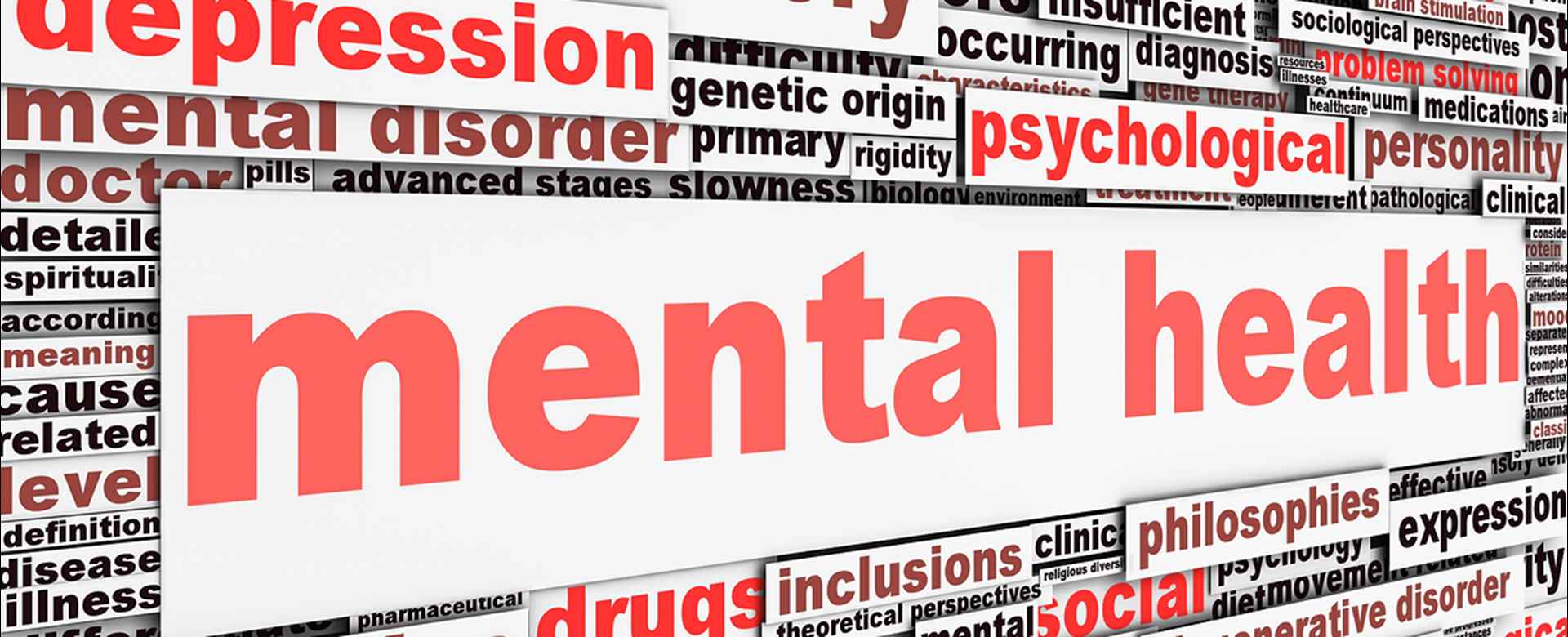Approximately 43.6 million adults in the U.S. suffer from some type of mental illness, according to the Substance Abuse and Mental Health Services Administration (SAMHSA). That is more than 18 percent of the U.S. population. At that rate, it's nearly impossible for someone to go their whole lives without either experiencing mental illness first hand or witnessing a friend or loved one go through it. Despite a significant rate of mental illness in the U.S., many people don’t receive the treatment they need, which leads to disability, homelessness, alcohol and substance abuse, incarceration and suicide. Too little education regarding mental illness and lack of access to treatment are creating a crisis in America.
Common mental health issues
While there are a multitude of health problems people can experience, there are several common illnesses linked with mental health, including:
- Depression: Depressive episodes that last weeks or months and affect a person’s normal functioning can be diagnosed as clinical depression and require treatment. There are types of depression, including major depressive disorder, which affects about 14.8 million adults. There is also persistent depressive disorder, which affects about 3.3 million adults in the U.S., according to the Anxiety and Depression Association of America (ADAA).
- Anxiety: Anxiety is an umbrella classification that includes conditions such as generalized anxiety disorder, panic disorder, phobias and social anxiety disorder. It is the most common mental illness in the U.S. and affects 40 million adults, according to the ADAA.
- Eating Disorders: Conditions such as anorexia, bulimia and binge eating disorders are all closely linked to anxiety issues. They are devastating to a person’s health and in extreme cases lead to death. The National Eating Disorder Association estimates 30 million Americans suffer from an eating disorder at some point in their lives.
- Bipolar Disorder: Bipolar disorder causes a person to suffer from severe mood swings with depressive and manic episodes, often with periods of normal behavior in between. According to the Depression and Bipolar Support Alliance, about 5.7 million adult Americans have this condition.
- Schizophrenia: About 3.5 million people in the U.S. are diagnosed with schizophrenia, which can cause delusions, hallucinations, disorganized behavior and speech, and other negative symptoms, according to the Schizophrenia and Related Disorders Alliance of America.
Suicide
Many mental health issues, particularly if left untreated, lead to suicidal thoughts and attempts. SAMHSA reported 9.4 million adults seriously considered killing themselves in 2014. Of those individuals, 2.7 million developed a suicide plan and 1.1 million made a non-fatal attempt.
Disability
Without access to proper treatment, many individuals who suffer from one or more of these conditions are unable to gain an education and keep a job. People who suffer from an untreated mental illness may not graduate from high school or college. Without a strong education, these individuals can have a harder time getting and maintaining a job. Mental illness that appears later in life can devastate an already established career. Both situations lead to a low income.
Homelessness
According to the U.S. Department of Housing and Urban Development, in 2015, there were more than 550,000 people who were homeless. Given how difficult it is to continuously and accurately track homeless individuals, this figure could be low. Up to 25 percent of these homeless individuals suffer from a type of mental illness. However, without an income, insurance and place to live, it’s nearly impossible for them to seek treatment.
Inaccessible Care
The true mental health crisis in America is not that individuals suffer from these conditions but that those who need treatment often don’t get it. Mental Health America reported that more than half of adults with a mental illness did not receive treatment between 2012 and 2013. The percentage of people who weren’t treated varies greatly depending on where they live and that state's nonprofit and Medicaid resources. Also, approximately 20 percent of adults with mental illnesses reported they attempted to receive treatment but did not have their needs met.
There are social, political, geographic and financial barriers to getting treatment, which is why many people suffer for years without proper medical care. Initial barriers to treatment often include:
- Stigma surrounding mental illness.
- Fear of discrimination.
- Lack of awareness regarding symptoms.
- Lack of knowledge regarding whom to go to for help.
However, once people move past the initial barriers to treatment, they still experience access and financial issues. Systematic barriers to treatment include:
- Lack of health insurance.
- Lack of access to mental health care providers.
- Inability to pay for doctor’s appointments.
- Inability to pay for prescription medication.
- Inability to get to and from doctor’s appointments.
The Affordable Care Act greatly expanded the number of people with insurance, including individuals on Medicaid, which has improved overall access to mental health care. However insurance does not guarantee people have access to treatment. Insurance policies do not necessarily guarantee coverage of mental health issues or access to mental health care providers within the person’s geographic region. The insurance policy also might not cover the person’s prescriptions. Individuals on Medicaid in certain states may have particular issues in accessing mental health care. States who expanded Medicaid in 2014 have more mental and behavioral health services available for their residents. However, millions of individuals live in states that didn’t expand their Medicaid services.
It’s clear that education regarding mental illness needs to improve. More families and coworkers need to be able to spot the signs of someone in need. However, once someone can identify that they or someone they care about needs help, they need to be able to get it. Access to mental health care can only improve when it becomes a national priority with additional budgetary resources.
Sign up for Updates:
Privacy Details
By submitting this form, you are consenting to receive marketing emails from: Advanced Medical Reviews, LLC. You can revoke your consent to receive emails at any time by using the Unsubscribe link, found at the bottom of every email.
